Climategate in Review
|
|
||||||||||||||
Climategate in Review
|
|
||||||||||||||
While the press and public was intently distracted with the pros and cons of anthropogenic global warming, the UN has been quietly working to promote it's real goals through a program known as Agenda 21. And as the following video demonstrates, their efforts to control all of the earth's resources while regulating the actions of every human on the planet, extend back to at least 1976.
To summarize the timeline:
"Land, because of its unique nature and the crucial role it plays in human settlements, cannot be treated as an ordinary asset, controlled by individuals and subject to the pressures and inefficiencies of the market. Private land ownership is also a principal instrument of accumulation and concentration of wealth and therefore contributes to social injustice; if unchecked, it may become a major obstacle in the planning and implementation of development schemes. Social justice, urban renewal and development, the provision of decent dwellings-and healthy conditions for the people can only be achieved if land is used in the interests of society as a whole." [Emphasis added]
1987: The UN issued the Brundtland Commission's report titled, Our Common Future, which introduces the concept of sustainable development in terms of the perceived needs of future generations. In order to accomplish this mission, it was declared that governments must be given control over society (people), the economy (livelyhood), and the environment (property).
1992: The ideas developed for Habitat I and by the Brundtland Commission were consolidated by a group of non-governmental organizations (NGOs) and presented as Agenda-21 during the Rio de Janeiro Earth Summit. A 52 minute video covers the Earth Summit opening plenary remarks by Maurice Strong, where he lays out the Agenda-21 goals and encourages all countries to adopt them. Relevant remarks begin around the 15 minute mark.
1993: President Bill Clinton signs an Executive Order creating the President's Council on Sustainable Development, with the mission of formulating ideas for the implementation of Agenda-21 — ideas that then became the basis for regulations enacted by various agencies such as the EPA, DOT and HUD. All of these action circumvented input from the legislative branch and the American public.
Since then, through the efforts of such organizations as ICLEI, the totalitarian ideas concealed behind the benign face of "sustainable development" have been pushed downward to the state, regional and city government levels.
The manufactured threat of "global warming" or "climate change" has always been used as a convenient weapon of fear to help advance the true underlying goal of eliminating individual initiative and replacing it with collectivist control. Now, as concerns over global warming wane in the face of the Climategate scandal and the mounting scientific date undermining it, observe how the focus of the political/environmental conversation is morphing into calls for the need to impose regulations and taxes upon all of us in order to support "sustainability."
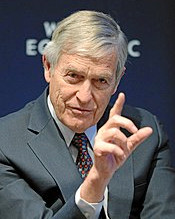
|
|
In 1998, Colorado Senator Timothy Wirth, who was also the Undersecretary of State for Global Affairs in the Clinton/Gore administration, stated: "We have got to ride the global warming issue. Even if the theory of global warming is wrong, we will be doing the right thing in terms of economic policy and environmental policy." [Emphasis added] |

|
|
In the same year (1998), Canadian Minister of the Environment Christine Stewart, agreed with Wirth, proclaiming: "No matter if the science of global warming is all phony ... climate change [provides] the greatest opportunity to bring about justice and equality in the world." [Emphasis added] |
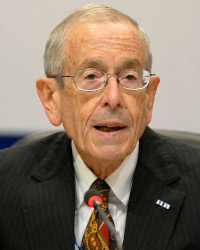
|
|
Richard Benedick, the US Deputy Assistant Secretary of State for Environment, Health, and Natural Resources, speaking about the 1992 Kyoto Protocol: "A global warming treaty must be implemented even if there is no scientific evidence to back the [enhanced] greenhouse effect." [Emphasis added] |

|
|
In 2002, Harvey Ruvin, an ICLEI USA board member, expressed one of the real purposes behind Agenda-21, clearly and succinctly: "The American system of justice must be changed to conform to that of the rest of the world, and there must be a shift in attitudes. Individual wants, needs and desires are to be conformed to the views and dictates of government planners. In the process of implementing Sustainable Development, individual rights will have to take a back seat to the collective." |
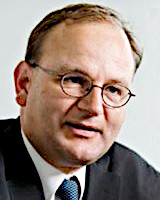
|
|
In 2010, Ottmar Edenhofer, then co-chairman of the IPCC Working Group III, made clear that the purpose of Agenda-21 was not it's stated environmental goals, but the control of resources and the redistribution of wealth: "Fundamentally, it is a big mistake to discuss climate politics separately from the big issues of globalization. [...] De facto, this is the expropriation of the countries with these natural resources. [...] We de facto redistribute the world's wealth due to climate politics. [...] One has to free oneself from the illusion that international climate politics is environmental politics. This has almost nothing to do any more with environmental politics[.]" |
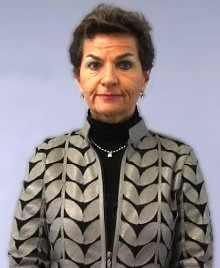
|
|
More recently during a 2015 press conference in Brussels, Christiana Figueres, the executive secretary of the U.N.'s Framework Convention on Climate Change, indicated that another primary goal of Agenda-21's focus on climate change, was nothing less than the destruction of capitalism. "This is the first time in the history of mankind that we are setting ourselves the task of intentionally, within a defined period of time, to change the economic development model that has been reigning for at least 150 years, since the Industrial Revolution. This is probably the most difficult task we have ever given ourselves, which is to intentionally transform the economic development model for the first time in human history." |
A review of the information on the UN's Agency 21 website reveals the following goals:
The actual underlying goal of Agenda 21 is abundantly clear:
Still not convinced? Then consider the latest proposal heading to the UN, as reported in the Vancouver Sun. Here are a few excerpts:
"Bolivia will this month table a draft United Nations treaty giving "Mother Earth" the same rights as humans — having just passed a domestic law that does the same for bugs, trees and all other natural things in the South American country."
"The bid aims to have the UN recognize the Earth as a living entity that humans have sought to "dominate and exploit" — to the point that the "well-being and existence of many beings" is now threatened."
"It also establishes a Ministry of Mother Earth, and provides the planet with an ombudsman whose job is to hear nature's complaints as voiced by activist and other groups, including the state."
"The UN debate begins two days before the UN's recognition April 22 of the second International Mother Earth Day"
The following video by John Anthony presents an excellent overview of the methodology being used to implement Agenda 21 in the United States. (15 minutes)
The following video presents an overview of how Agenda 21 will impact your life. (20 minutes)
As the previous video explains, Agenda 21 is being implemented primarily on the local level through city involvement in ICLEI, the International Council for Local Environmental Initiatives. If you are curious as to whether your local government has signed on to implement these proposals, a search can be performed here. Check it out. You may be surprised at what you find!
What is the real purpose and the exact consequences to be expected from the enactment of such a proposal? The answer can be found in the goals of the following group:
The Voluntary Human Extinction
Movement
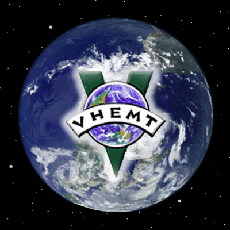
|
|
"Phasing out the human race by voluntarily ceasing to breed will allow Earth's biosphere to return to good health. Crowded conditions and resource shortages will improve as we become less dense." "We're the only species evolved enough to consciously go extinct for the good of all life, or which needs to. Success would be humanity's crowning achievement." When Ayn Rand wrote, "There is only one fundamental alternative in the universe: existence or non-existence — and it pertains to a single class of entities: to living organisms." she was honoring the natural choice to value life. Here we have nature turned on it's head, with people proudly proclaiming death as their standard and goal. And regardless of whether it is pursued with good humor or with blinding rage, it is hatred for life and the pursuit of death that is the real meaning and purpose of the philosophy driving the environmental movement. |
Monbiot, Jensen, Agenda 21 and VHEMT perfectly articulates the polarity that exists between the environmentalists' view of mankind as a meek, collective destroyer, to be relegated to living no better than a mindless beast (or worse), and those held by Ayn Rand of men as heroic beings capable of unparalleled achievement and limitless potential. So, who is the destroyer and who is the savior? The choice is yours. Either lay down you copy of Atlas Shrugged and accept your role as a hapless, mindless sheep or nomadic caveman — or grasp your copy firmly in hand and wield it as the tool it was intended to be, standing proudly in the long tradition of our Paleolithic ancestors who knew how to dream of a better future and then work creatively to realize it.
| Back up to: |
|
Index |
|
|
||
| Next Section: |
|
The Practical Consequences of the Environmental Movement |